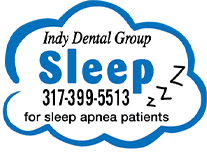Emergency Dentist – Indianapolis, IN
Expert Emergency Care Right When You Need It
We hope that you never experience a dental emergency. That’s why we offer personalized preventive services to help keep your smile strong and healthy for life. However, we understand that accidents still happen. Whether you experience a broken tooth or a horrible toothache, we’re here to offer expert emergency care right when you need it. Don’t hesitate to give Indy Dental Group a call for a dental emergency so we can get your oral health back on track right away!
Why Choose Indy Dental Group for Emergency Dental Care?
- Dental Insurance Welcome & Flexible Financing Available
- Same-Day Appointments Often Available for Emergency Patients
- Team of Highly Experienced Doctors Dedicated to Your Wellbeing
How We Treat Dental Emergencies
Should a dental emergency strike, our team at Indy Dental Group is here to provide the fast and precise care you need. The first thing you should do is give one of our five conveniently located offices a call. From there, this is what you can expect:
- We’ll schedule your appointment: Oftentimes, we can see emergency patients the same day that they call us. We’ll also provide personalized first-aid instructions that will help you manage your situation until you reach our office.
- One of our doctors will examine your smile: As soon as you reach our practice, one of our talented and experienced doctors will meet with you right away to examine your smile and take any necessary X-rays.
- Review the findings and make a treatment plan: Once we’ve determined the source and extent of your emergency, we’ll review all your treatment options and help you pick the one that’s best for you.
- Get the care you need: As soon as you’ve agreed on a treatment plan, we’ll get to work right away. We will primarily focus on getting you out of pain and saving your natural teeth. Before you know it, you’ll be enjoying a happy, healthy smile once again!
The Most Common Dental Emergencies
Your team of Indianapolis emergency dentists at Indy Dental Group are well-equipped to handle any dental emergency you may encounter. Instead of visiting the ER, you’ll save a significant amount of time, money, and hassle by giving us a call for urgent dental care first. Below, you’ll see 11 of the most common dental emergencies that we treat regularly.
Understanding the Cost of Emergency Dentistry
The cost of emergency dental care in Indianapolis at Indy Dental Group will depend entirely on the type of treatment needed to address it. For example, treating a chipped or broken tooth with a filling will cost less than repairing an infected tooth with a root canal. Thankfully, you’ll be pleased to learn that the emergency exam itself will be relatively cost-effective, especially when compared to the costs of a medical emergency. Once we’ve had a chance to better understand what treatment you need, we’ll be able to give you a personalized estimate of costs. We’ll work with you to make sure your insurance benefits are being maximized and are happy to offer flexible dental financing.
Every Dental Emergency is Different
When meeting with a member of our team at Indy Dental Group, we will assess your dental emergency and determine the type of treatment you will need to resume normal activity. This visit is relatively inexpensive, which is often a welcome reality for most patients. Because it is impossible to predict how much your treatment will cost, you must call our office to schedule an appointment. No two dental injuries are the same, so we will need to determine the underlying problem before providing a thorough estimate.
The most common methods of treatment for dental emergencies include:
- Dental crowns
- Root canal therapy
- Tooth extractions
- TMJ treatment
- Antibiotics
- And more!
At Indy Dental Group, our team will make sure to explain our findings and go over your treatment plan before discussing the estimated costs. This will allow you to feel more comfortable and confident when moving forward with your treatment.
Taking Care of Your Smile Can Save You Money
While it is true there are dental accidents that cannot be avoided, others occur because an infection or damage remains untreated for a period of time. These situations often result in worsening conditions for your smile, which can lead to timelier and costlier procedures. Instead of assuming that a particular problem will simply “go away” on its own, it’s better to invest in regular dental checkups and cleanings and practice good oral habits at home to save thousands of dollars over time.
The moment you notice tooth pain or suffer facial trauma of any kind, do not wait to call your emergency dentist in Indianapolis at Indy Dental Group. No matter if you believe you can afford treatment or not, it is better to seek professional help sooner rather than later, as the price tag for treatment will only grow higher the longer you wait. For example, addressing a toothache immediately might require antibiotics, but if you wait to see a dentist, you may be faced with root canal therapy or tooth extraction.
Does Dental Insurance Cover Dental Emergencies?
Most dental insurance companies provide some form of coverage for dental emergencies. Depending on your plan, you may receive one yearly emergency exam that is fully covered by insurance; however, you should review your policy to determine if this is available. Because most restorative treatments (i.e., dental crowns, root canal therapy, tooth extractions, etc.) are typically covered anywhere from 50-80% by your insurance carrier, your deductible and annual maximum will play a part in how much your insurer will agree to pay. If you need help to maximize your benefits or better understand your plan, our team at Indy Dental Group is here to offer assistance.
Other Options for Making Dental Emergencies Affordable
If you are uninsured or need help to pay any remaining out-of-pocket costs, we also work closely with CareCredit. This flexible financing option allows eligible individuals to apply for low and zero interest payment plans. Depending on your eligibility and needs, you can set up monthly installments to help pay for your treatment, which allows you to focus less on the financial obligations and more on improving your oral health.
Keys to Preventing Dental Emergencies
Unfortunately, it is not always possible to prevent dental emergencies in Indianapolis. Some are entirely unavoidable; however, a few simple precautions and healthy habits can go an extraordinarily long way in lowering your risk of encountering one. Our dentists at Indy Dental Group want you to know we are here should you need immediate assistance, but if you want to lower your chances of seeing an emergency dentist throughout the week or on the weekend, it’s best to make sure you’re taking the appropriate steps to safeguard your smile, such as:
Keeping Your Regular Dental Appointments
It is recommended that regular six-month dental checkups and cleanings are necessary to prevent the development of tooth decay, cavities, and gum disease. These visits also make it possible for our dental team in Indianapolis to check for abnormalities that may be associated with oral cancer. By allowing our experts at Indy Dental Group to examine your teeth, gums, and facial structures as well as provide a thorough professional cleaning every six months, you will maintain better oral health year-round and reduce your risk of severe toothaches and/or infection.
Maintaining Good Oral Hygiene
One of the most effective ways to stay out of the emergency dental office in Indianapolis is to keep up with your daily brushing, flossing, and rinsing. Practicing good oral hygiene habits at home will ensure that your smile remains healthy and beautiful in between appointments. You’ll just need to make sure you brush twice a day for two minutes using fluoride toothpaste, floss at least once a day to remove bacteria, and rinse with an antimicrobial mouthwash to flush out any remaining debris. Between your at-home dental hygiene and regular checkups and cleanings, you can avoid the development of cavities, gum disease, and the complex treatments that come with them.
Eating Healthy Foods
The mouth and body are closely connected, which means the food you eat will help or hinder your overall health. Choosing to eat healthier alternatives like leafy greens, lean proteins, fruits, vegetables, and foods high in calcium and Vitamin C will help to strengthen your tooth enamel and encourage optimal gum health. While a cookie or a few chips are fine in moderation, it is best not to incorporate them into your daily diet. The reason is that they are known to cause cavities, which can turn into more serious issues that require complex care (i.e., root canal therapy, tooth extraction) if left untreated.
Wearing Proper Mouth Protection
Protecting your teeth and gums should always be a top priority, especially if you play sports or suffer from a condition known as bruxism. If you’re an avid athlete, wearing a customized mouthguard can help to absorb and minimize the direct impact should you face a hard hit or sudden fall. The same type of oral appliance can also be used if you are prone to grinding and clenching your teeth while you sleep. This continuous habit can wear down your tooth enamel as well as cause gum recession and chronic jaw pain. With the help of a customized mouthguard, you can keep your teeth from touching throughout the night and alleviate additional pressure placed on your jaw joints and facial muscles.
Never Using Your Teeth to Open Packages
Your teeth are not the same as a pair of scissors, pliers, or hammers. Yes, they are tools, but their only purpose is to chew and eat foods that you consume. They’re not meant to open packages or containers. Just because tooth enamel is considered the hardest substance in the body doesn’t mean it’s indestructible. Accidental damage can occur should you decide to use your teeth as tools to open various items. Whether it is a small fracture, chip, or partially dislodged tooth, you can be faced with needing an urgent appointment with our Indy Dental Group team to inquire about proper services to treat your broken smile.
Dental Emergency FAQs
If you are looking for a qualified emergency dentist in Indianapolis, you will be pleased to learn that we have many licensed and knowledgeable dental professionals at Indy Dental Group. Not only are we capable of addressing your smile concerns and improving your oral health, but we will also quickly work to eliminate pain associated with dental emergencies, as well as provide at-home tips to help you minimize discomfort while waiting for your appointment. Our team will also answer any questions you might have about your injury or what you can expect should you experience one.
What should I keep in my emergency dentistry kit?
An emergency dental kit is a useful addition to your car, workplace, or home. Keeping essential items nearby can help you remain calm should an injury occur. Some of the most common items to keep in your kit include:
- Gauze pads and dressings
- Sterile gloves
- Small container for teeth or lost/broken restorations
- Cotton balls
- Dental cement should your crown or filling fall out
- Denture adhesive
- Anti-inflammatory medicines (i.e., ibuprofen)
- Floss
- Ice pack
- Topical anesthetic
- Dental practice phone number
How should I sleep with tooth pain?
You should keep your head elevated when trying to sleep with tooth pain. This will keep the blood from rushing to your head and causing additional pressure to the area of your toothache. Also, taking an over-the-counter pain reliever and avoiding certain foods (i.e., those that are acidic, cold, or hard) right before bed can be helpful. If you experience any swelling or serious discomfort, a cold compress can be a great way to feel less pain.
Can superglue be used to repair a broken denture?
No, you should never use superglue or any other similar solution to repair your broken prosthetic. Not only does superglue cause your foods to taste different, but it does not hold up well in damp environments like your oral cavity. Also, it is extremely toxic, which is why you should never ingest it, as it can cause a serious allergic reaction. Instead, you should call our office to alert us to your dental emergency in Indianapolis.
Can I pop a dental abscess on my own?
You should never pop a dental abscess on your own. The reason is that you could cause a dental infection that requires immediate attention. Calling our dental office and seeking an emergency appointment is the best solution for the situation, as a dentist can employ the right techniques and safety measures to avoid a serious infection and ensure the future success of your smile.
Do chipped teeth heal?
Although tooth enamel is considered the hardest substance within the human body, according to the American Dental Association (ADA), it is not impenetrable or indestructible. When chipping a tooth, it will not heal on its own, which means you must seek professional help to fix the problem. While a tooth may undergo remineralization, it will not “grow back.” To fix this type of problem, the only viable solution is to have a customized dental crown created, as it can change the size, shape, and color of your tooth.
Will a toothache go away on its own?
While the pain of a toothache may dissipate over time, it doesn’t mean that the problem no longer exists. Instead, there is a chance that it has worsened. Tooth decay, cavities, gum disease, infection, etc., can cause the tooth’s nerve to no longer register pain, which means it has “died.” Failing to seek emergency treatment for a toothache can cause an abscess to form, which can spread to the bloodstream and affect the rest of your body.
It's best to see your emergency dentist in Indianapolis as soon as you can to avoid further damage to your oral and overall health.
Should you put a knocked-out tooth in water?
No, you should never put a knocked-out tooth in a container of water. The reason is that it can kill the tooth roots because of its contents. The best thing you can do is try to reinsert the tooth into the open socket and gently bite down to hold it in place until you reach the dentist’s office. If this is not possible, though, you can place the tooth in a container of milk and bring it with you to your appointment. This will keep the tooth viable, allowing the fluid to remain within the root so that it doesn’t die.
Can the emergency room remove a tooth?
You may be surprised, but it is actually illegal for a general physician or ER doctor to extract a tooth. Only a licensed dentist can perform this type of procedure. If you go to the emergency room for treatment, they will likely only give you pain medication to alleviate your discomfort. They might also be able to provide some antibiotics; however, when it comes to removing a damaged or severely decayed tooth, you will need to see your dentist for that kind of treatment.



























